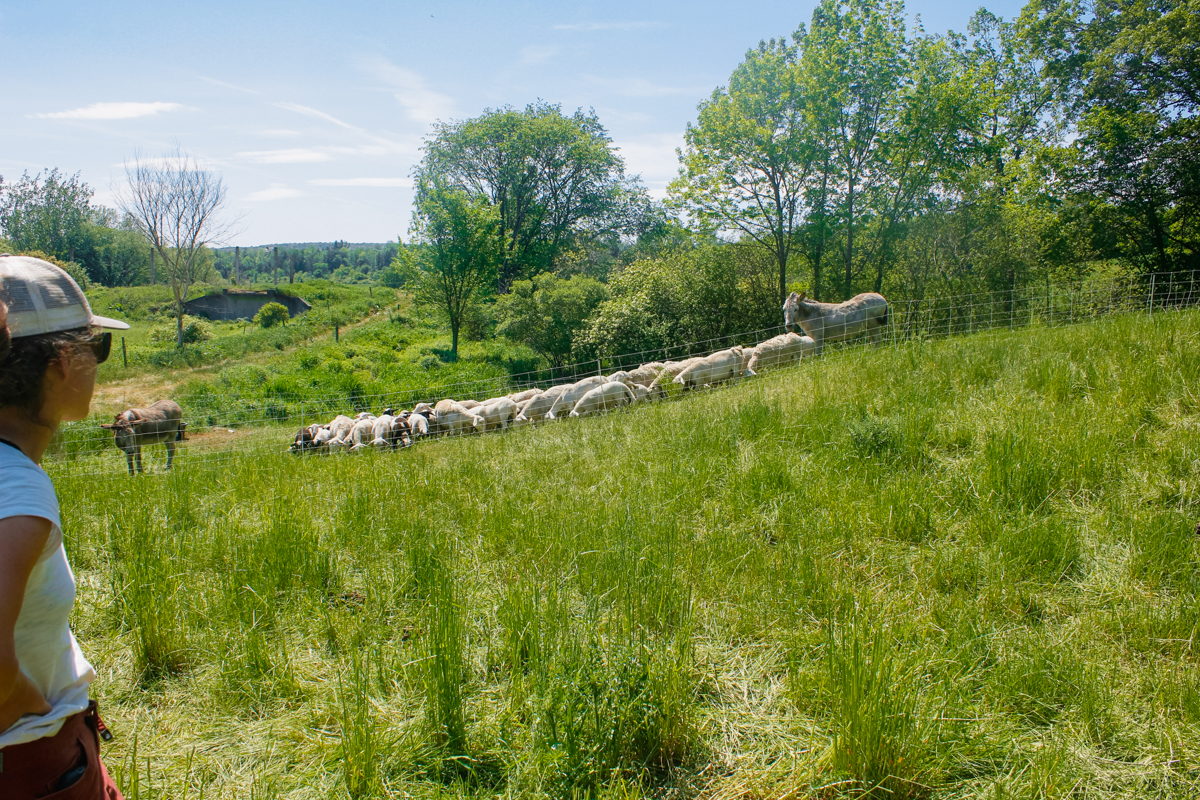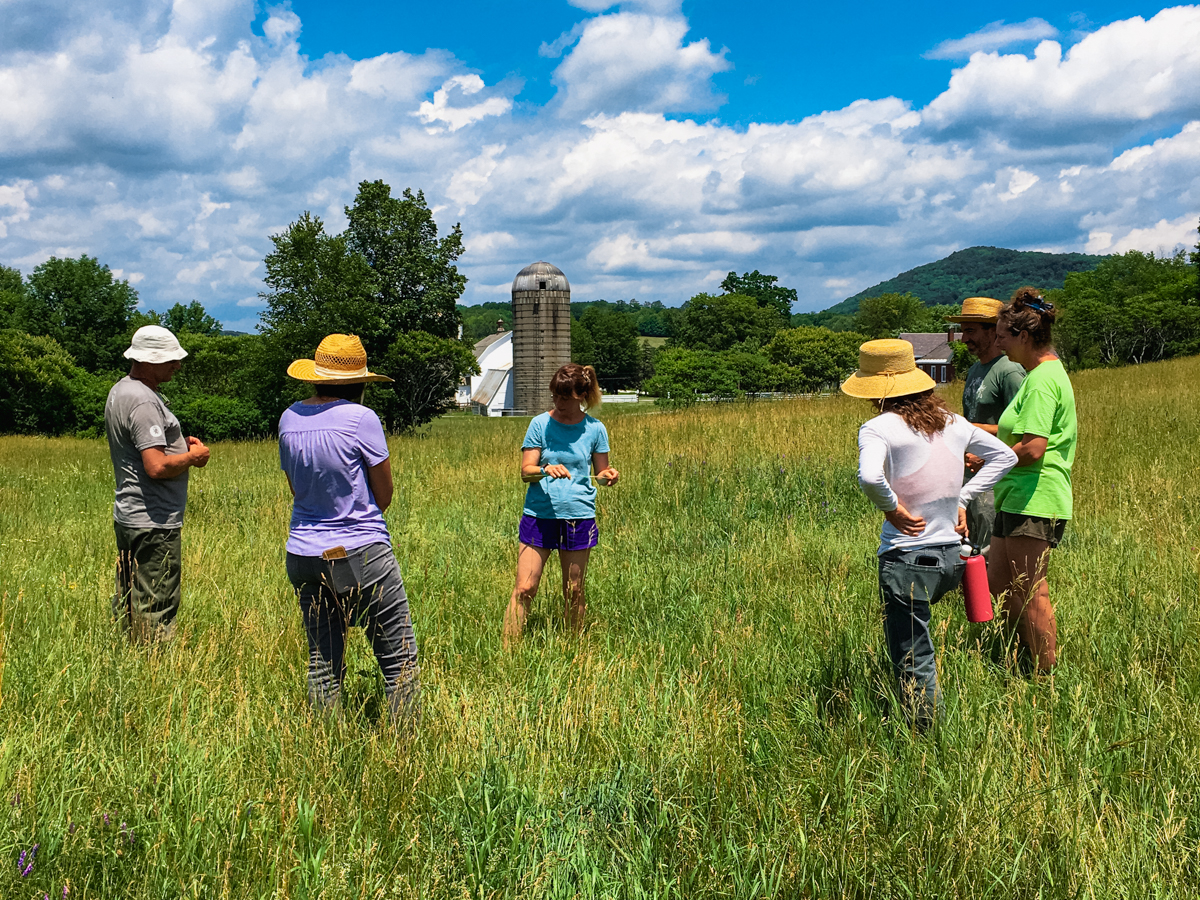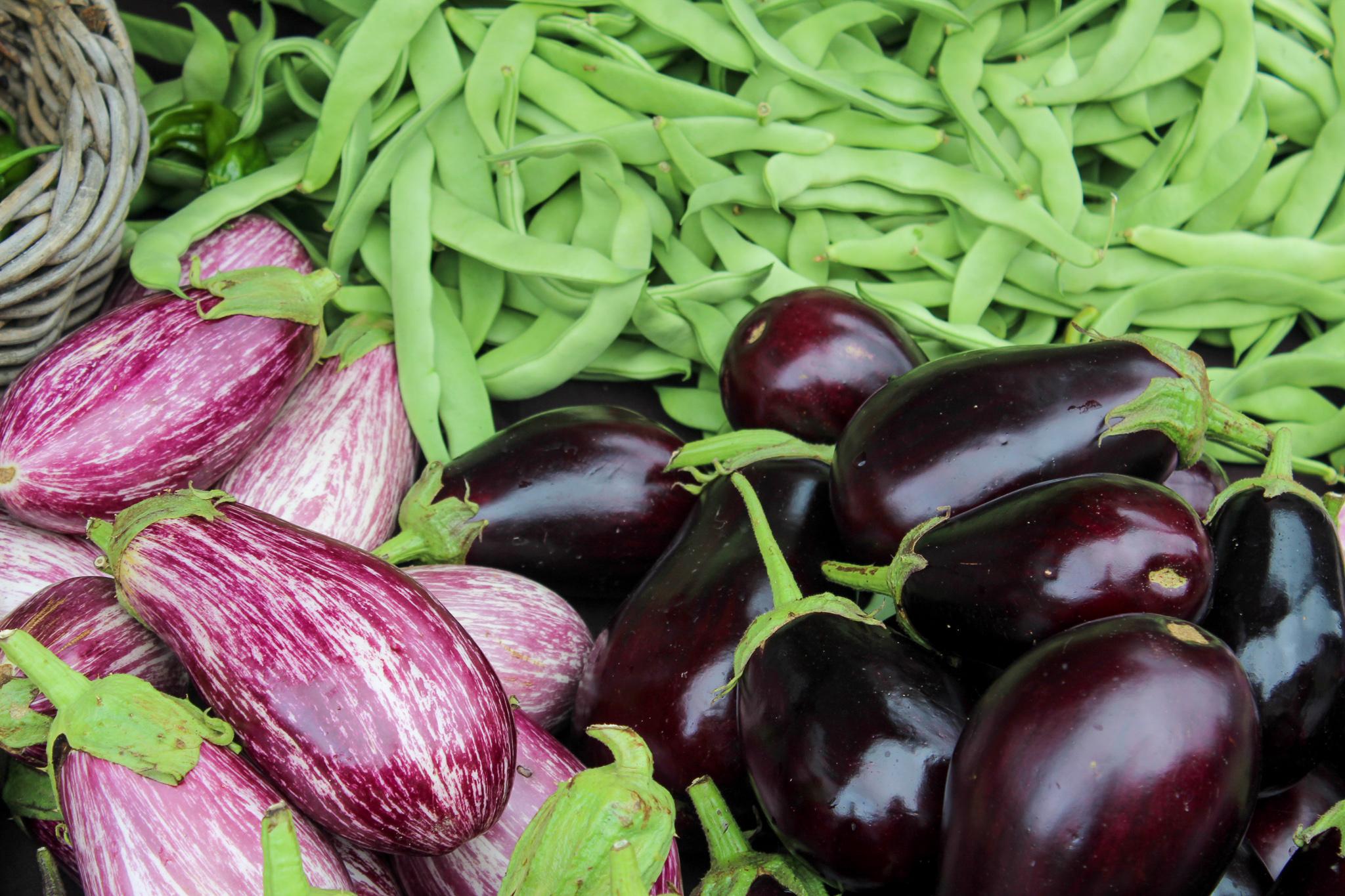The Jack Lazor Memorial Soil Stewards cohort launched in the spring of 2021 thanks in part to generous support from Stonyfield Organic, the Lazor Family, and Organic Valley. The first cohort for the pilot year was an incredible group of twelve inspiring livestock and dairy farmers who were excited to enhance their knowledge of soil health and share best practices with each other.
The group gathered virtually twice during the spring, once with Sarah Flack and once with Heather Darby to share goals and dive deep into soil tests and whole-farm nutrient cycling. The farmer cohort gathered in-person several times throughout the 2021 growing season to visit each other’s farms for pasture walks, soil assessment demonstrations, in-depth farmer-to-farmer discussions, and many opportunities for shared learning.
Since the launch of the Soil Stewards cohort, NOFA-VT has been grateful to receive additional financial support from several generous supporters and has heard broad interest from farmers about participating in cohort-based learning opportunities about soil health. Two new cohort groups will launch in the winter of 2023, with applications opening in the late fall of 2022. One cohort will be for livestock and dairy farms and one will be geared toward vegetable farms. Both are intended for intermediate to advanced farmers who are excited about farmer-to-farmer learning focused on soil health and climate resilience.
A Spring Visit to Levy Lamb & Wayward Goose Farm
On an unseasonably hot spring day, I drove down to West Pawlet to catch up with two of the farmers from the pilot group of Soil Health Stewards: Mara Hearst of Levy Lamb, and Dan and Laurie Brooks of Wayward Goose Farm. Mara lives just around the corner from Dan and Laurie and they collaborate frequently; Mara sells her lamb and other products at the Wayward Goose farm market and also works as their bookkeeper as part of her off-farm job.
Mara spent years working at Someday Farm in Dorset and met Jack Lazor through an interest in growing grain to feed livestock on the farm. Over the years, Mara learned a great deal from Jack about stewarding the land. Now in her fifth season running her own farming operation, she is grateful to have a group of farmers to continue learning with. “I took it for granted that I could call him anytime and ask him anything,” Mara shared about Jack. She continued, “It’s so great to have this group of farmers to ask questions of and who ask questions I didn’t even know I had.”

Mara manages a flock of 50 grass-fed ewes on two parcels of leased land, one in West Pawlet and one in Dorset. She always knew she wanted to raise animals that fit into the landscape, and over time she came to believe firmly that sheep improve the land when managed well. This past year the herd produced 70 lambs, and with grass season back in action, her flock is working actively each day to reclaim land that has historically been without much biological activity.
Brush-hogging pastures to clip down weeds and open up space for sunlight to kill off parasites has been helpful in advance of moving the herd in to do their work improving the land.
A few of the things Mara is thinking and learning about: extending the grazing season and winter grazing, efficient grazing systems for sheep on remote and leased pastures, and collaborating with other livestock farmers on increasing slaughter access for small ruminants in the area. She is navigating the realities of leasing land and how best to invest in land in which she may not have long-term tenure, a situation that can make long-term soil health management difficult.
After taking a walk through the pasture and moving the herd to a new paddock, we drove up the road to visit with Dan and Laurie at Wayward Goose Farm. Dan and Laurie have faced lots of twists and turns in their farming journey, the most recent of which was losing both their primary milk market and facing the impacts of the COVID-19 pandemic within a few months of each other.

Their skill, resilience, and community support have led them to open a farm market, downsize their milking herd, and diversify their operation through the production of sweet corn, potatoes, and a few other vegetables. They also raise roaster chickens, pigs, and beef. In addition to their raw milk, the market is stocked with a wealth of local products from nearby farms including a wide variety of cheeses, vegetables, honey, bread, coffee, home-baked treats and so much more. The space is full of beautiful artwork created by Laurie and feels like a celebration of all the delicious and nutritious food the area has to offer. Dan also delivers milk to a few local creameries for cheese production, and partners with Ice House Farm (another participant in the Soil Stewards cohort) who makes cream-top yogurt from Wayward Goose Farm milk that is sold at their farm market.
Having grown up on a fifth-generation dairy farm, Dan has a great deal of experience managing pastured animals. While we visited, the cows grazed nearby on lush pasture that has been coming back to full life over the ten and half years that Dan and Laurie have been managing the farm and grazing cows on the land.
Through the Soil Stewards cohort, farmers like Dan, Laurie, and Mara come together with other farmers from across the state with a wide range of experience to learn together, inspire each other, and carry on the legacy of soil building that Jack Lazor leaves behind. “We feel fortunate to have other inspiring farmers like Mara nearby that we can share resources and ideas and manpower with,” Dan and Laurie shared, “and the soil cohort has given us a broader range of farmers and farms from further afield to connect with and learn from.” ◊
Learn more about the Jack Lazor Memorial Soil Health Stewards >

